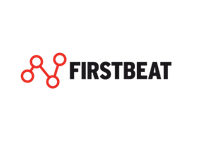The 3 most important new wellbeing techniques every business should implement

To do this, it is important businesses understand and support an individual employee’s situation at work and beyond the 9-5 working day.
But, when it comes to implementing this joined-up approach to wellbeing, which areas should businesses be focusing on?
Sleep
From Premier League footballers to Olympic stars, elite athletes consistently point to sleep as a key part of their preparation and success. And the ‘corporate athlete’ is no different.
Adults are recommended to get 7-9 hours of sleep each night, but the average is just over 6. Poor quality sleep increases the risk of poor mental health and is linked to the onset of depression or anxiety. A poor night’s sleep can also impact productivity and happiness in the workplace. That’s why educating employees on the importance of shut eye – and how to set yourself up for a good night’s sleep – is so important.
A ‘sleep toolkit’ can help tackle the issue. People aren’t always aware of how they sleep or how it is impacting their life. Educating people with tips for better sleep, offering services where staff can monitor their sleep and learn what works best for them, and looking at organisation structures that may be impacting sleep quality (shift times, poorly defined emails policy, etc.) are all stepping stones to helping employees sleep better.
Stress management
Talking of joined-up wellbeing. Do you know one of the top factors cited by poor sleepers? Stress.
Stress isn’t always a bad thing. In fact, when complimented with effective recovery, short burst of stress can help you perform under pressure as the adrenaline kicks on. But consistently feeling stressed has serious implications on mental health and can lead to a lack of productivity, exhaustion and even burnout.
Ensuring employees are supported in this area is vital. And company decision-makers have an important role in ensuring this is the case by not encroaching on an employee’s private, leisure time. For instance, in France, a 2017 law means businesses of 50+ employees must define when staff can send and answer emails.
Introducing forward-thinking policies like this can help create a positive working culture which helps alleviate stress, lets people recover during the evenings and set themselves up for better performance and wellbeing in the long-term.
Fitness
Focusing on fitness isn’t a new wellbeing technique. But improvements in technology and understanding of the impact of fitness on employee wellness have emerged in recent years.
A fitter employee will feel better and perform better. And, in today’s modern workplace where the tendency can be to spend hours behind a desk and Public Health England claim physical inactivity is as deadly as smoking, it has never been more important to teach staff the importance of staying active.
But wellbeing techniques need to go beyond organising a fun run or handing over a free fitness tracker than ends up in the drawer. Introducing context to fitness wearable tracking, gamification (which department can do the most steps this month?) and supporting individuals most at risk all add up to a positive wellbeing culture. Of course, this is all more likely to hit home when those promoting the policies are front and centre when it comes to being involved.
This article was provided by Firstbeat.
Supplied by REBA Associate Member, Firstbeat Technologies
Firstbeat is the leading provider of physiological analytics for well-being and sports.







